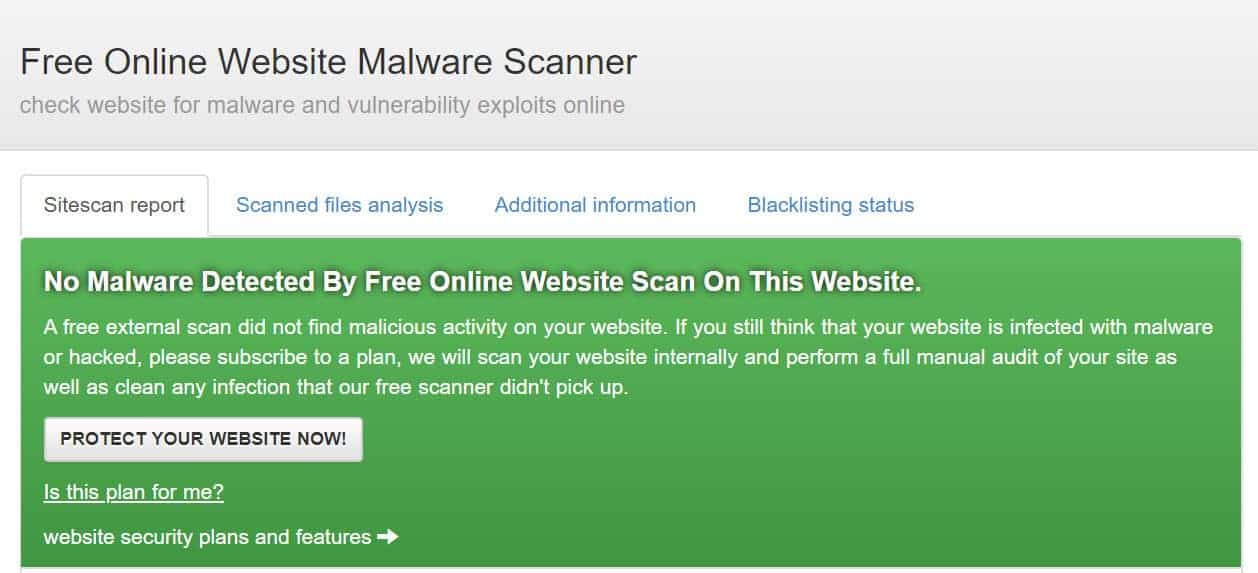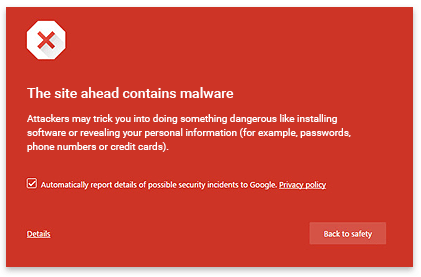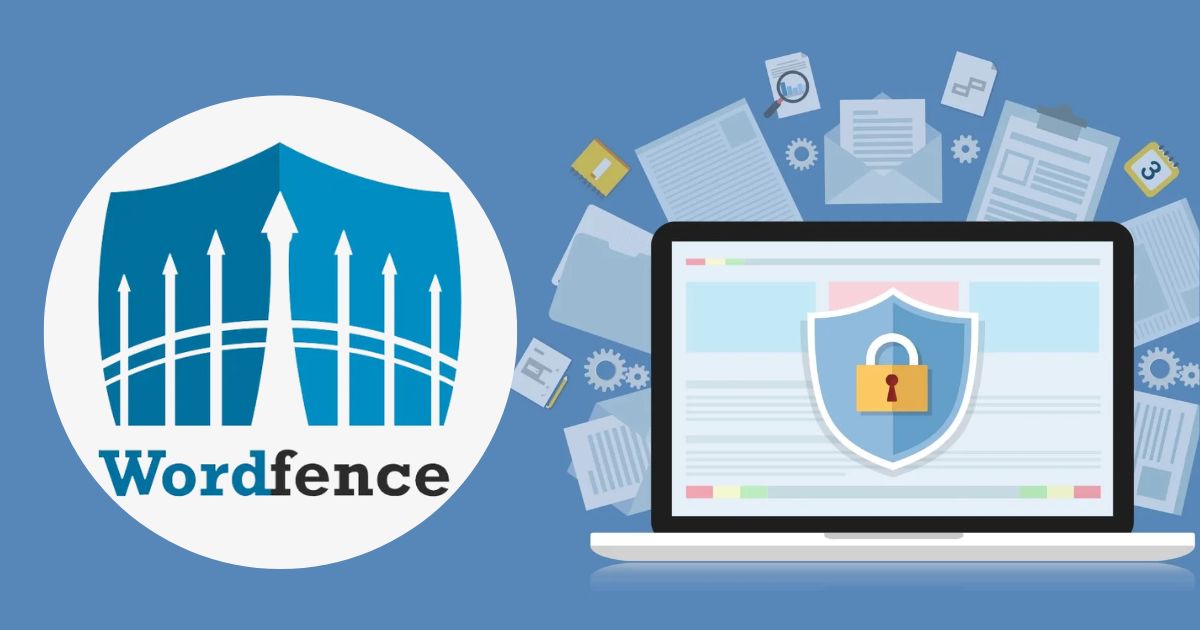A website malware removal tool free of charge can help protect your site from malicious threats. It scans and removes malicious software or scripts efficiently.
Malware can severely damage your website, compromising security and user trust. A reliable, free malware removal tool is essential for maintaining a safe online presence. These tools detect and eliminate threats, ensuring your site remains clean and secure. Regular scans prevent unauthorized access and data breaches.
Using a free solution can save costs while providing robust protection. Investing time in regular maintenance with such tools can enhance your website’s performance and security. Protect your online assets by utilizing a trusted website malware removal tool today.
Introduction To Website Malware
Website malware is a malicious software designed to harm websites. Hackers use it to steal data, spread viruses, or disrupt services. It’s crucial to understand how website malware works.
i. Common Malware Types
Website malware comes in various forms. Each type affects websites differently. Here are some common types:
- Viruses: These attach to files and spread across your website.
- Worms: Worms replicate themselves and spread through networks.
- Trojans: Trojans disguise as legitimate software but perform harmful actions.
- Spyware: This malware spies on users and steals sensitive information.
- Ransomware: This locks your data and demands payment to unlock it.
ii. Impact On Websites
Malware can have a severe impact on websites. It can cause data loss, reduced performance, and poor user experience.
- Data Loss: Malware can delete or corrupt your website’s data.
- Reduced Performance: Infected websites often slow down significantly.
- Poor User Experience: Visitors may encounter errors or get redirected to harmful sites.
Using a Website Malware Removal Tool helps maintain a safe website. It removes threats and keeps your site running smoothly.

Credit: www.comparitech.com
Signs Your Site Is Infected
A malware-infected website can cause many issues. Detecting these signs early helps in quick resolution. Here are some common symptoms of malware on your site.
i. Unexpected Pop-ups
Unwanted pop-ups are a clear sign. These pop-ups can be annoying. They may appear even when you’re not clicking anything. If your site shows pop-ups randomly, it is likely infected. Pop-ups can also redirect users to other suspicious sites.
ii. Slow Loading Times
A noticeable drop in speed is another sign. Malware often consumes significant resources. This leads to slow loading times. Users may experience delays when navigating your site. This has the potential to negatively impact user satisfaction.
Below is a table summarizing these signs:
| Symptom | Description |
|---|---|
| Unexpected Pop-Ups | Random pop-ups appear without user interaction. |
| Slow Loading Times | Website pages take longer to load. |
Protect your site by using a free website malware removal tool. Keeping your site clean ensures a smooth user experience.
Benefits Of Free Malware Removal Tools
Malware can cause serious issues for your website. Free malware removal tools offer a cost-effective and simple solution. These tools can help protect your website from threats without breaking the bank.
i. Cost-effective Security
Free malware removal tools provide cost-effective security for your website. You don’t need to spend money on expensive software. These tools can scan and remove malware without any cost. They offer basic protection that can meet most needs. Some tools also provide real-time updates and alerts. This ensures your website stays safe at all times.
ii. User-friendly Features
Many free malware removal tools come with user-friendly features. You don’t need to be a tech expert to use them. The interfaces are typically straightforward and user-friendly. Most tools offer one-click scans and automatic updates. This simplifies the process of securing your website.
| Feature | Description |
|---|---|
| One-Click Scan | Check your website’s security with one simple click. |
| Automatic Updates | Ensure your protection with the latest security patches. |
| Real-Time Alerts | Get notified instantly about any threats. |
These tools also offer tutorials and support. This makes them perfect for beginners. Many helpful resources can be found online to aid you. This way, even with no prior knowledge, you can still secure your site.
Top Free Malware Removal Tools
Keeping your website safe is important. Free malware removal tools can help. They detect and remove harmful software from your site. Below, we review some top tools.
i. Overview of Wordfence
Wordfence is a comprehensive security plugin for WordPress, known for its robust firewall and malware scanner. It uses signature-based detection to identify malware, scanning files for known malicious patterns. This method enables Wordfence to detect both known malware and suspicious changes on the site.
Wordfence also protects websites from brute force attacks, malicious traffic, and suspicious activity in real-time. Additional features include two-factor authentication (2FA), IP blocking, login security, and vulnerability scanning for core files, plugins, and themes. Wordfence provides detailed security reports and real-time monitoring.
ii. Overview of Sucuri
Sucuri is a cloud-based security platform designed to protect websites from malware, hacks, and DDoS attacks. Unlike Wordfence, which relies on signature-based detection, Sucuri uses behavioral analysis and anomaly detection to identify malicious activity. This method monitors traffic patterns and user behavior to flag suspicious activities and potential threats.
Sucuri offers a robust firewall, which operates at the DNS level, protecting from DDoS attacks, brute force attempts, and other malicious threats before they even reach your server. Key features include malware removal, website monitoring, SSL support, and a cloud-based firewall that works outside the WordPress environment. Sucuri also provides post-hack cleanups and detailed reports on any issues found.
Comparison Table:
| Feature | Wordfence | Sucuri |
|---|---|---|
| Real-time Detection | Yes | No |
| Automatic Updates | Yes | Yes |
| Deep Scanning | Yes | Yes |
| User-Friendly Interface | Yes | Yes |
| Cloud-based Firewall | No | Yes |
| DDoS Protection | Limited | Yes |
| Vulnerability Scanning | Yes | Yes |
| Malware Removal | Premium Only | Yes |
| Website Monitoring | Yes | Yes |
| 2FA Authentication | Yes | No |
| Signature-based Detection | Yes | No |
How To Use Malware Removal Tools
Using a website malware removal tool can save your site. These tools assist in finding and getting rid of harmful malware. Here’s how to use them effectively.
i. Step-by-step Guide
- Install the Tool: Download and install the malware removal tool. Ensure it’s from a trusted source.
- Backup Your Website: Always backup your website before running any scans. This ensures you can restore it if needed.
- Run a Full Scan: Use the tool to perform a complete scan of your website. This will detect any malware.
- Review Scan Results: Carefully review the results. Identify any threats or suspicious files.
- Remove Detected Malware: Use the tool to remove any detected malware. Follow the tool’s instructions.
- Check Your Website: After removal, check your website. Ensure everything is working properly.
- Update Software: Update all your website software. This includes plugins and themes.
- Implement Security Measures: Apply additional security measures to prevent future attacks.
ii. Common Mistakes To Avoid
- Not Backing Up: Always backup your website before scanning.
- Ignoring Scan Results: Review and address all scan findings. Do not ignore them.
- Using Untrusted Tools: Only use malware removal tools from trusted sources.
- Skipping Updates: Regularly update your website software. This includes plugins and themes.
- Neglecting Security Measures: Implement security measures like firewalls and strong passwords.
| Step | Description |
|---|---|
| Install the Tool | Download and install from a trusted source. |
| Backup Your Website | Ensure you can restore your site if needed. |
| Run a Full Scan | Detect any malware on your website. |
| Review Scan Results | Identify threats or suspicious files. |
| Remove Detected Malware | Follow instructions to remove malware. |
| Check Your Website | Ensure everything works properly. |
| Update Software | Follow the instructions to remove malware. |
| Implement Security Measures | Prevent future attacks with additional measures. |

Credit: www.f-secure.com
Preventing Future Infections
It’s crucial to ensure your website stays malware-free. After removing malware, preventing future infections is key. Implementing best practices helps keep your website safe. Here are some key takeaways you should follow.
i. Regular Updates
Always keep your website software updated. This includes your CMS, as well as your themes and plugins. Developers release updates to fix security vulnerabilities. Regular updates protect your website from new threats.
To manage updates effectively, consider the following:
- Enable automatic updates when possible.
- Regularly check for update notifications.
- Backup your website before updating.
ii. Secure Password Practices
Using strong, unique passwords is crucial. Weak passwords are easy targets for hackers. Follow these secure password practices:
- Combine letters, numbers, and symbols in your passwords.
- Avoid common words and phrases.
- Change your passwords regularly.
Consider using a password manager. It helps generate and store complex passwords. This ensures you don’t use the same password across multiple sites.
| Practice | Benefit |
|---|---|
| Automatic Updates | Ensures timely security patches. |
| Strong Passwords | Reduces risk of unauthorized access. |
Case Studies
Exploring real-world case studies helps us understand the effectiveness of a Website Malware Removal Tool Free. These stories highlight successful malware removal and the lessons learned from each experience.
i. Successful Malware Removal
Many websites have faced malware attacks. Below is a table showing some successful cases:
| Website | Type of Malware | Tool Used | Outcome |
|---|---|---|---|
| ExampleSite1 | Ransomware | Malware Removal Tool A | Complete Removal |
| ExampleSite2 | Spyware | Malware Removal Tool B | System Restored |
| ExampleSite3 | Adware | Malware Removal Tool C | Secure Website |
ii. Lessons Learned
Each case provided valuable insights. Here are some key takeaways:
- Regular Scans: Regular scans catch malware early.
- Backup Data: Always keep backups of your website data.
- Update Software: Keep all software updated to prevent vulnerabilities.
- User Education: Teach users about best practices for safe browsing online.
These lessons help maintain a secure website environment. Implementing them can prevent future malware attacks.

Credit: www.webinspector.com
Frequently Asked Questions
i. Is There A Truly Free Malware Removal Tool?
Yes, there are free malware removal tools. Free tools like Malwarebytes, Avast Free Antivirus, and Bitdefender Free Edition are good examples.
ii. How Can I Scan My Website For Malware For Free?
Use free online tools like Sucuri SiteCheck or VirusTotal. Enter your website URL to scan for malware.
iii. How To Remove Malware From A Website?
To remove malware from a website, use a malware scanner to identify threats. Delete or quarantine infected files. Update all software and plugins. Change all passwords. Regularly scan to prevent future infections.
iv. How do I scan a website for malware using online tools?
Use online tools like Google Safe Browsing, VirusTotal, or Sucuri SiteCheck to scan the website for malware.
Conclusion
Keeping your website secure is crucial for maintaining trust. A free malware removal tool can help. It ensures your site remains safe from threats. Regular scans and updates can prevent potential damage. Protect your online presence with the right tools. If your website is built on WordPress then you should learn WordFence Security – Is Wordfence Security Good? Stay vigilant and keep your website healthy for your visitors.





















